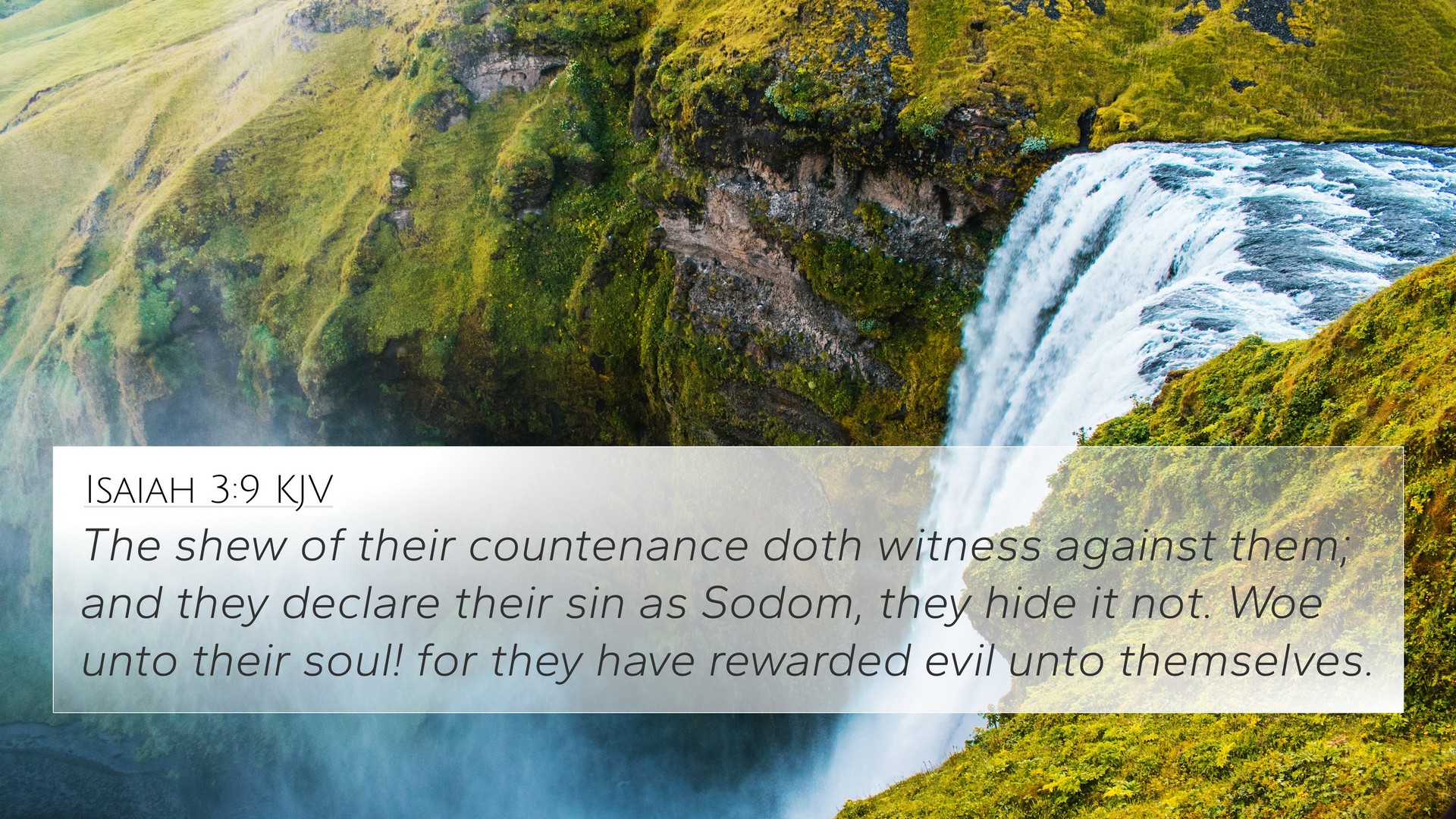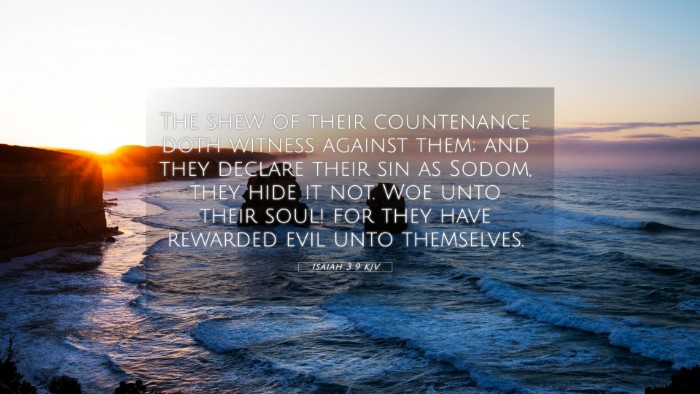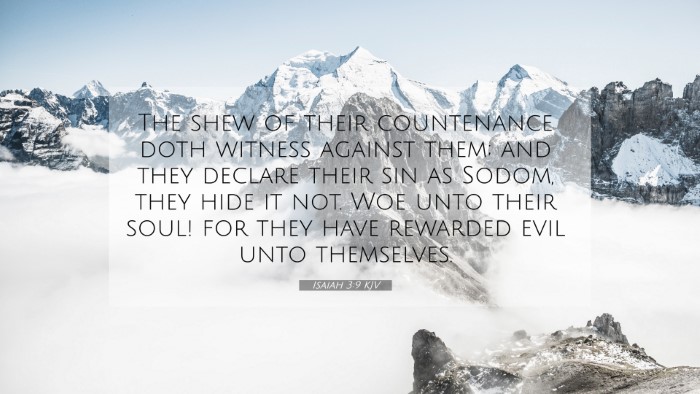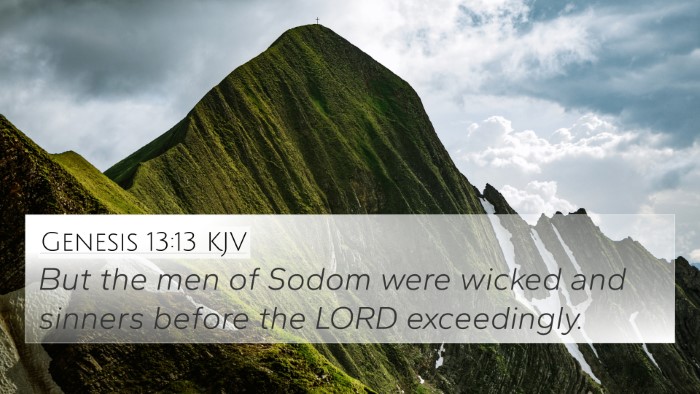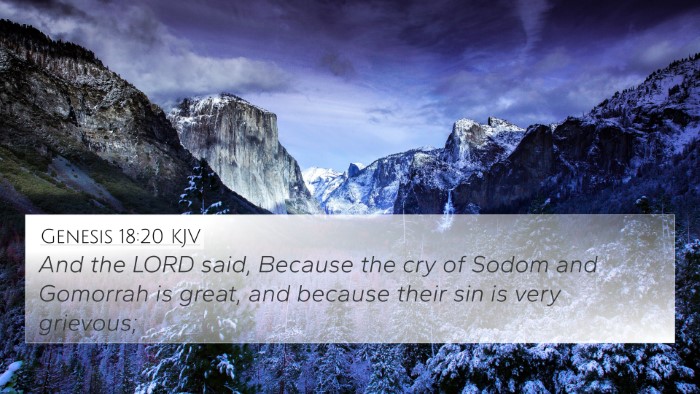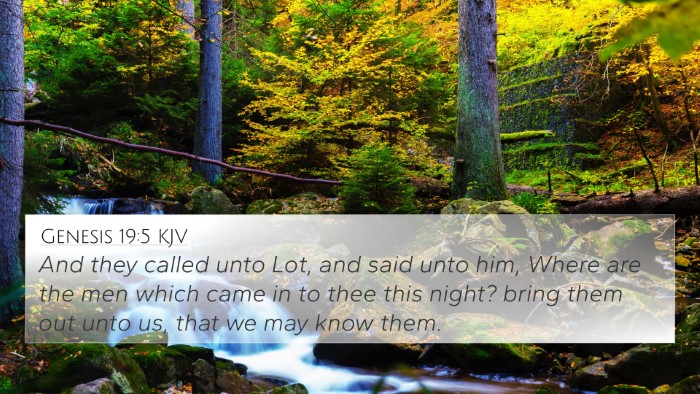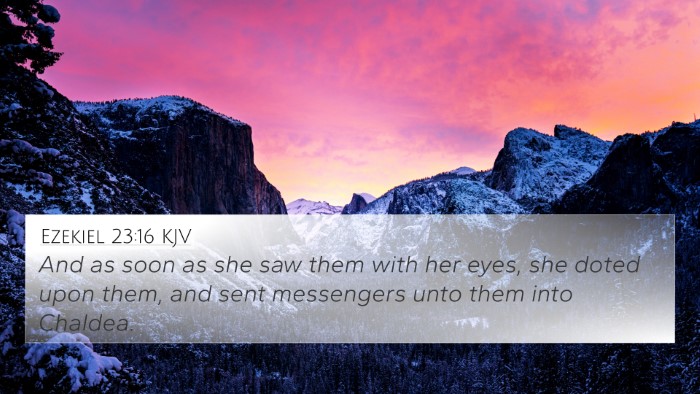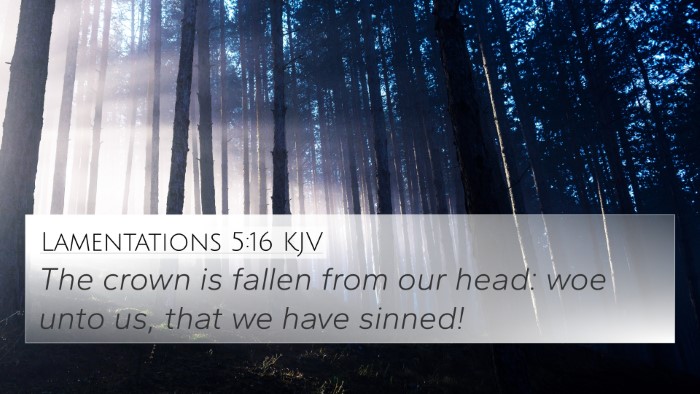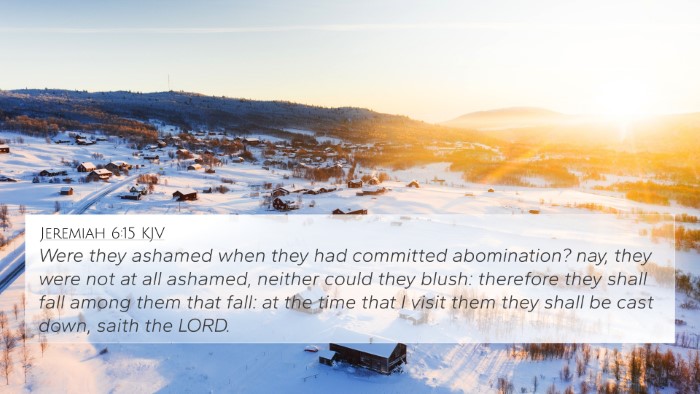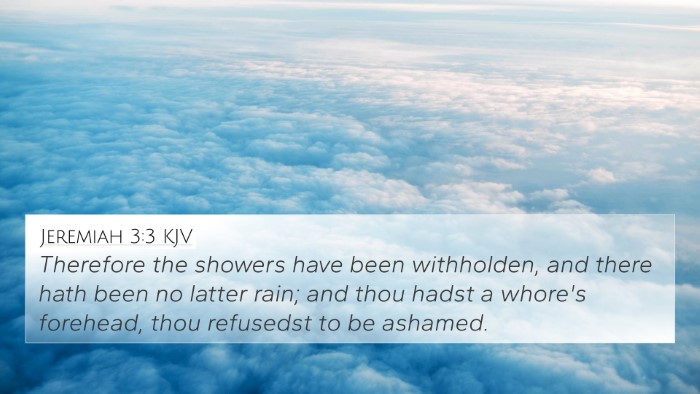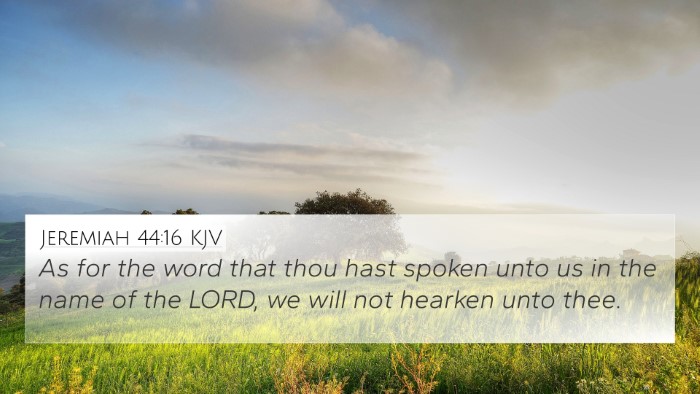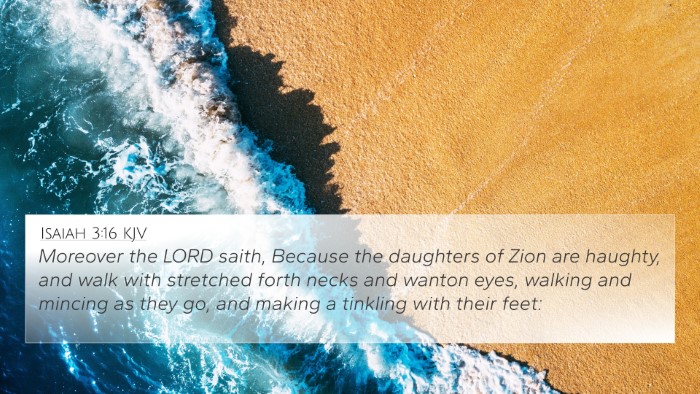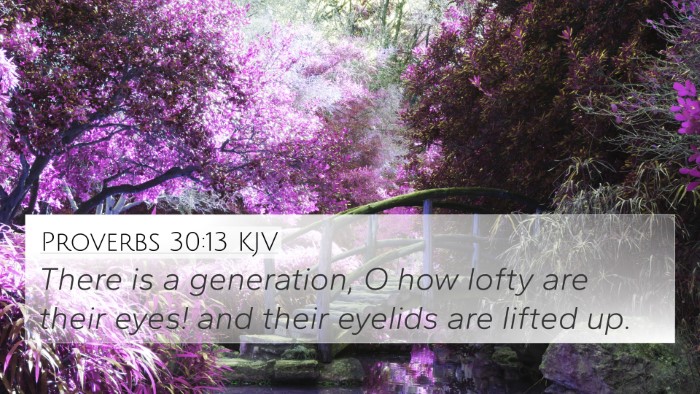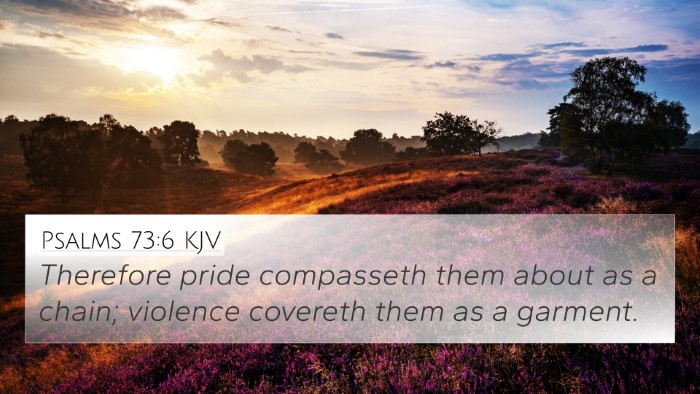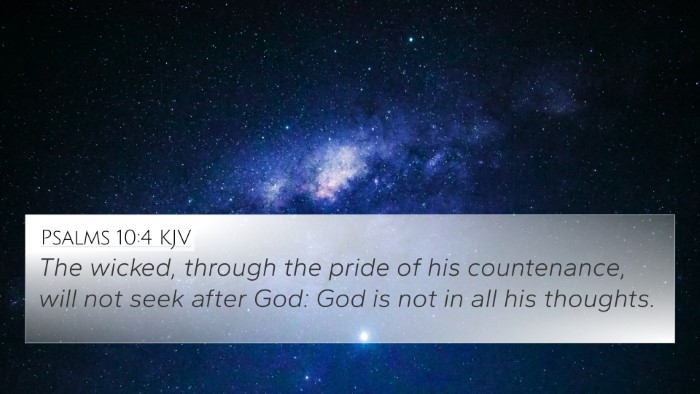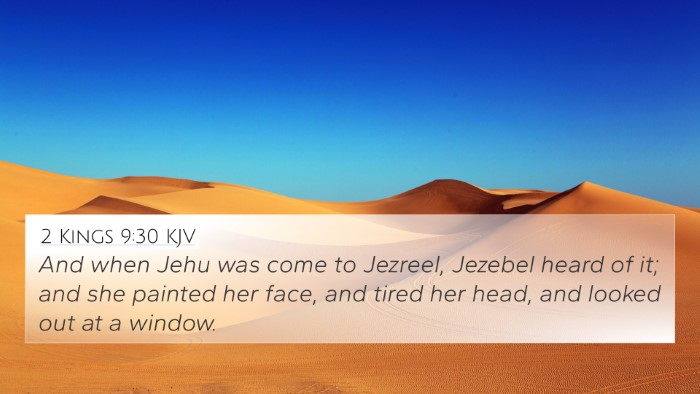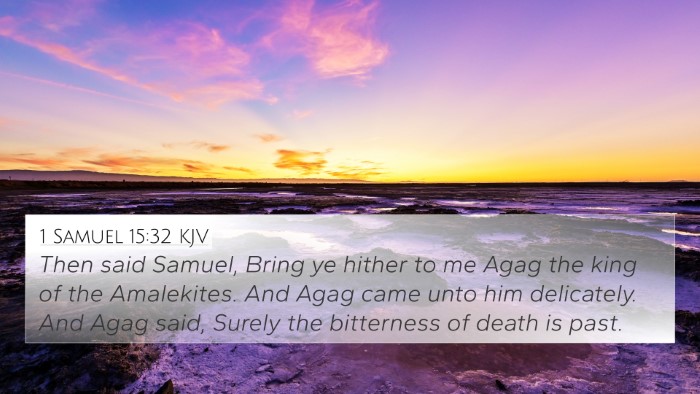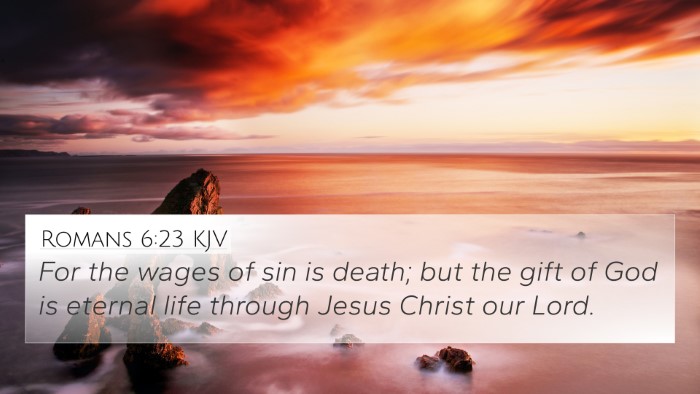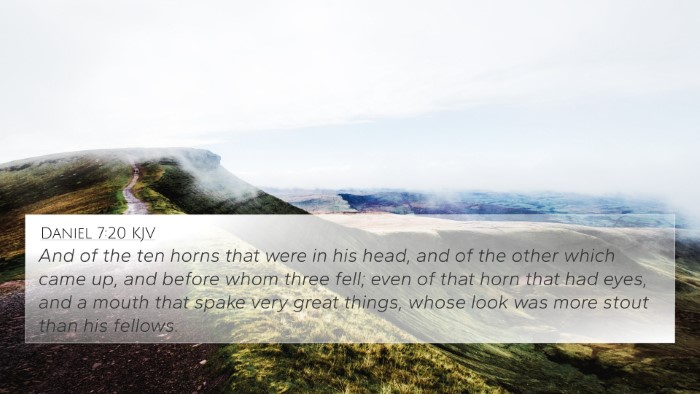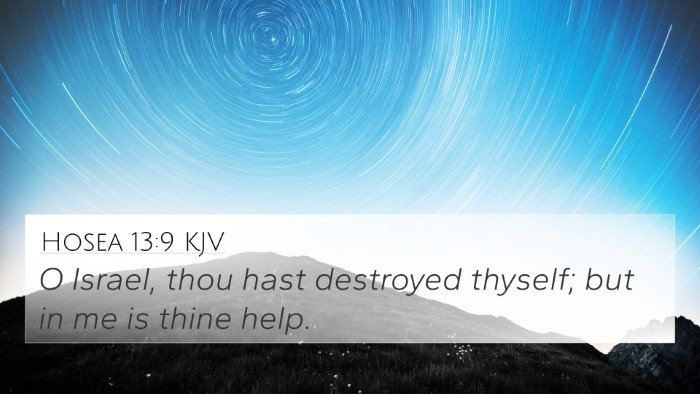Understanding Isaiah 3:9
Isaiah 3:9 states: "The show of their countenance doth witness against them; and they declare their sin as Sodom, they hide it not. Woe unto their soul! for they have rewarded evil unto themselves."
This verse serves as a grave warning regarding the state of moral decay and rebellion against God in Judah. Let's break down its meaning through a combination of insights from public domain commentaries by Matthew Henry, Albert Barnes, and Adam Clarke.
Meaning and Interpretation
Moral State of the People: The verse begins by noting that the outward appearance and demeanor of the people reflect their internal sins. Their "countenance" reveals their guilt, suggesting that their pride and unabashed reflection of their sins are clear for all to see.
Open Declaration of Sin: The phrase "they declare their sin as Sodom" indicates a complete lack of shame about their transgressions. Just as the inhabitants of Sodom were notorious for their sinful ways, so too are the people in Isaiah’s time openly proud of their wickedness.
Consequences of Wickedness: The declaration "Woe unto their soul!" serves as a dire warning that there are serious repercussions for their actions. They have turned away from the path of righteousness and chosen to reward themselves with the consequences of their evil deeds.
Cross-References
To enhance our understanding of Isaiah 3:9, let us consider several cross-references that illustrate similar themes of sin, judgment, and the state of the heart:
- Isaiah 1:4: "Ah, sinful nation, a people laden with iniquity..." - Highlights the rebellious nature of Israel.
- Romans 1:24-32: Discusses God’s judgment upon those who embrace sin without restraint.
- Jeremiah 3:3: "Therefore the showers have been withheld, and there hath been no latter rain; and thou hast a whore's forehead, thou refusest to be ashamed." - Reflects a similar disregard for sin.
- 2 Peter 2:6: "And turning the cities of Sodom and Gomorrha into ashes condemned them with an overthrow..." - Connects the grave consequences of sin.
- James 1:14-15: Describes how lust leads to sin, and sin when it is finished brings forth death.
- Proverbs 14:34: "Righteousness exalteth a nation: but sin is a reproach to any people." - A similar sentiment on the impact of morality.
- Ezekiel 18:30: "Therefore I will judge you, O house of Israel, every one according to his ways, saith the Lord God." - Points to personal accountability for sin.
Application of the Verse
The practical application of Isaiah 3:9 extends to modern readers, encouraging self-reflection on moral integrity and the consequences of unrepentant sin. The shame of sin should lead one toward repentance rather than pride.
Thematic Bible Verse Connections
In exploring connections between Bible verses, we can refer to thematic links, such as:
- The judgment on sin: Seen throughout both the Old and New Testaments.
- Call to repentance: Consistently echoed in the writings of the prophets and the apostles.
- The relationship between sin and its consequences: Illustrated in both the historical narratives and Proverbs.
Conclusion
Isaiah 3:9 is a poignant reminder of the seriousness of sin and the need for authenticity in our relationship with God. By understanding its implications and exploring related scriptures, one can appreciate the overarching themes of sin, judgment, and redemption within the Bible.
